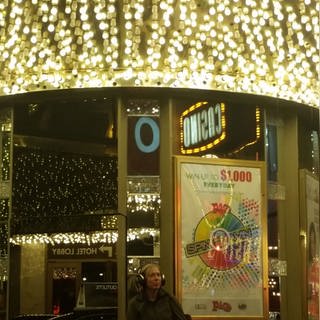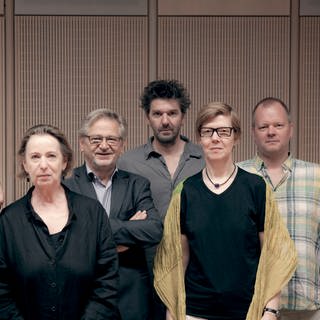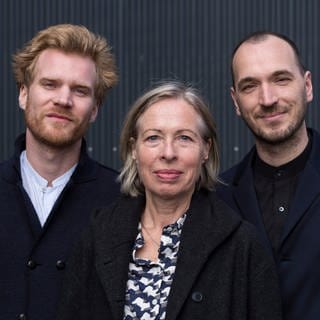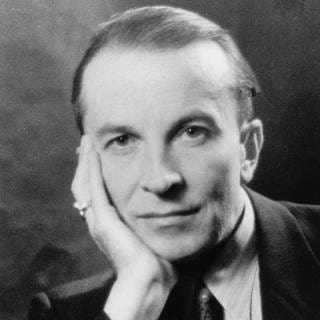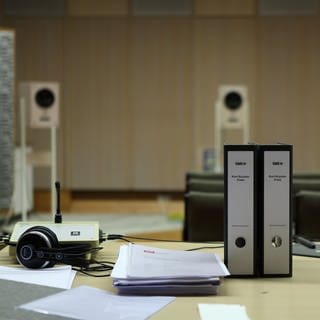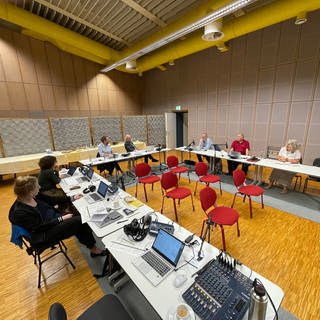Angel of Memory
An audio play, consisting of long conversations with my father in Dutch dialect, with translation and commentary in German by a female voice (Lisa Charlotte Friedrich), accompanied by trumpet, conches and other animal horns, flapping wing sounds, a clock, as well as electronic and concrete music.
In the spring of 2012 my father, who was 83 years old at the time, told me how he had noticed that he was growing older. He felt less and less of an urge to do new things every day. Instead, he loved those moments in which he could sit still for a long time and let his thoughts roam free. In those moments, many memories, dreams and feelings from the past came to him, allowing him to enjoy them intensely and experience them anew.
He had very close contact with death during his whole life. This began when he was a child, living in poverty and seeing people around him dying of illness and frailty. Later, as an adolescent living at a convent which also housed a hospice, he accompanied people in their final moments. As a young adult, he was a carpenter’s apprentice and built coffins in which he had to place the dead bodies, which he later also buried. Much later on he became the village sexton, which also made him the volunteer undertaker.
His experiences with death, especially the warmth and passion with which he spoke about death, have always fascinated me, and inspired me to conduct a series of interviews. I wanted to know how he felt just living in the here and now, without a future? How did his relationship with death change in the autumn of his life? Was he afraid of death?
I recorded many answers, long ones: fragments of memories; dreams and emotions. His stories dealt with existential topics: death, poverty, solitude, love and security, the meaning of life. Listening to the recordings, I was fascinated by the language and the sounds of his voice. I heard how almost every story began cheerfully, but then, with the last breath, mirrored his feelings and general state – not in words, but rather in sounds and noises.
For this audio play I chose 15 fragments, in an almost chronological order, that I think will speak to people. Simple stories and at once important memories from a generation that experienced world wars, economic crises and reconstruction; thus they give us points of reference for understanding daily life today.
In addition, this audio play also documents a language that is slowly disappearing. My father speaks a dialect whose roots lie in Plattdüütsch or Nedderdüütsch. In the Netherlands it is also known as Achterhoeks. In the Library of Congress in Washington, DC, this language is registered under ISO 639-2, language code nds (Nedersaksisch).
About the author
Marco Blaauw, born in Lichtenvoorde (the Netherlands) in 1965, studied trumpet at the Conservatorium in Amsterdam with, among others, Pierre Thibaud and Markus Stockhausen. His central aim is to develop the trumpet further, both in its techniques and its repertoire. In addition to his dedication to ensemble music, he pursues solo projects in the area of composed and improvised music as well as intensive collaboration with both established and emerging composers of our time. A number of works have been written specifically for him, including compositions by Richard Ayres, Peter Eötvös, Georg Friedrich Haas, Isabel Mundry, Wolfgang Rihm and Rebecca Saunders. From 1993–2007 he worked intensively with Karlheinz Stockhausen – Blaauw was involved in numerous premieres within the opera cycle LICHT and the cycle KLANG. He has been a core member of the Colognebased Ensemble Musikfabrik since 1994. His career as a soloist has taken him all over the world.
From the start I had the mental image of a troubadour spreading news with the tools of his art. And that’s exactly what I want to do – with my trumpet.
